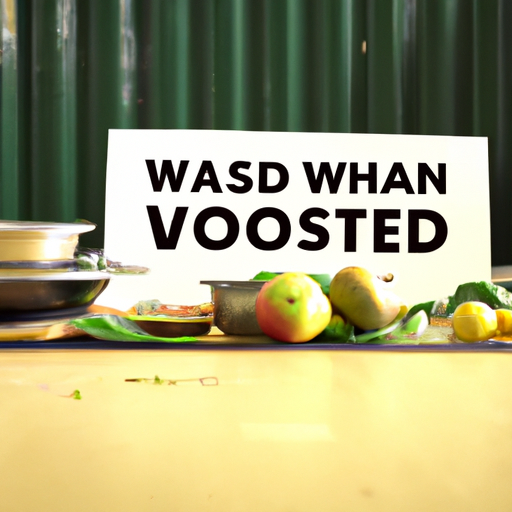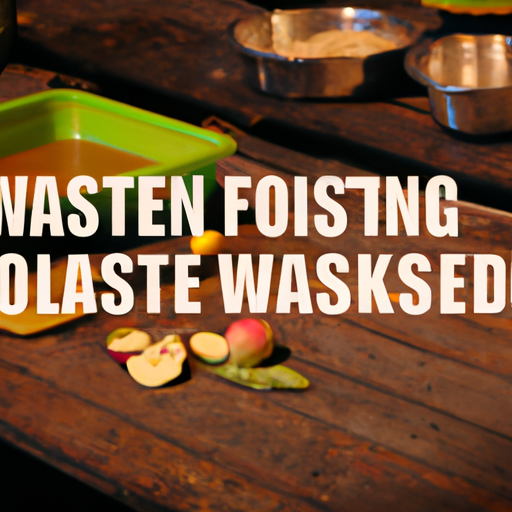Innovative Strategies Our Teams Use to Combat Food Waste
Tackling food waste is a global challenge that requires innovative strategies and collective effort. Our teams are at the forefront of this battle, employing creative and effective methods to reduce food waste and make a significant difference.
One of the most innovative strategies our teams use is the “ugly produce” initiative. This initiative focuses on selling fruits and vegetables that may not meet the aesthetic standards of traditional grocery stores but are still perfectly good to eat. By doing this, we’re not only reducing food waste but also challenging the notion that good food has to look a certain way.
Another strategy we employ is the use of technology. Our teams have developed an app that connects consumers with restaurants and grocery stores that have surplus food. This surplus food, which would otherwise go to waste, is sold at a discounted price. It’s a win-win situation: consumers get a great deal, and businesses reduce their food waste.
We also believe in the power of education. Our teams regularly conduct workshops and seminars to raise awareness about the issue of food waste. We teach people how to store food properly, how to use leftovers creatively, and how to compost food scraps. We believe that by equipping people with the right knowledge and skills, we can empower them to make a difference in their own homes and communities.
Our teams also work closely with local farmers and suppliers. We encourage them to practice sustainable farming methods and to harvest only what they can sell. We also help them find markets for their surplus produce, ensuring that nothing goes to waste.
In addition to these strategies, our teams are constantly experimenting with new ideas and solutions. For instance, we’re exploring the use of food waste as a source of renewable energy. We’re also looking into the possibility of creating a circular economy, where waste from one process becomes the input for another.
But perhaps the most important strategy we employ is collaboration. We understand that tackling food waste is not something we can do alone. We need to work together with businesses, governments, and individuals. We need to share our knowledge and resources, and we need to learn from each other.
Our teams are making a difference, but there’s still a long way to go. Food waste is a complex issue, and it requires a multifaceted approach. But we’re optimistic. We believe that with our innovative strategies, our passion, and our commitment, we can make a significant dent in the problem of food waste.
In conclusion, our teams are using innovative strategies to combat food waste. From selling “ugly produce” and using technology to connect consumers with surplus food, to educating people about food waste and working with local farmers, we’re doing our part to reduce food waste and make a difference. We’re also constantly exploring new ideas and solutions, and we’re committed to working together with others to tackle this global challenge. We believe that with our efforts, we can create a more sustainable and waste-free world.
Highlighting Our Team’s Efforts in Reducing Food Waste

Tackling food waste is a global challenge that requires collective effort. It’s a problem that’s not only detrimental to our environment but also to our economy. However, it’s heartening to see that our teams are making a significant difference in this area. They are working tirelessly to reduce food waste, and their efforts are worth highlighting.
Our teams have been instrumental in implementing innovative strategies to combat food waste. They’ve been working on the front lines, identifying areas where food waste occurs and developing effective solutions to address these issues. One of the key strategies they’ve employed is the redistribution of surplus food. Instead of letting excess food go to waste, they’ve been coordinating with local charities and food banks to ensure that it reaches those who need it most. This not only reduces waste but also helps to alleviate food insecurity in our communities.
In addition to redistribution, our teams have also been focusing on education. They’ve been conducting workshops and seminars to raise awareness about the impact of food waste. They’ve been teaching people about the importance of meal planning, proper food storage, and creative ways to use leftovers. By empowering individuals with this knowledge, they’re helping to foster a culture of waste reduction.
But that’s not all. Our teams have also been exploring technological solutions to tackle food waste. They’ve been collaborating with tech companies to develop apps that can help consumers and businesses track their food waste. These apps provide valuable insights into consumption patterns and highlight areas where waste can be reduced. They’re a powerful tool in the fight against food waste, and our teams have been instrumental in their development and deployment.
Moreover, our teams have been advocating for policy changes at the local and national level. They’ve been working with lawmakers to develop legislation that encourages waste reduction and promotes sustainable practices. They’ve been pushing for tax incentives for businesses that reduce their food waste and penalties for those that don’t. Their advocacy work is helping to create a policy environment that supports our waste reduction goals.
Our teams have also been leading by example. They’ve been implementing waste reduction practices in their own lives, demonstrating that it’s not just possible but also beneficial to live a waste-free lifestyle. They’ve been composting their food scraps, growing their own vegetables, and shopping locally to reduce their carbon footprint. Their actions serve as a powerful testament to their commitment to tackling food waste.
In conclusion, our teams are making a significant difference in the fight against food waste. Their efforts are not only reducing waste but also helping to create a more sustainable and equitable food system. They’re showing us that it’s possible to tackle food waste, and they’re inspiring others to join them in this important work. Their dedication and innovation are truly commendable, and we’re proud to have them on our team. So, here’s to our teams, the unsung heroes in the fight against food waste. Their efforts are making a world of difference, and for that, we are truly grateful.
The Role of Our Teams in Addressing the Global Food Waste Problem
Tackling food waste is a global challenge that requires collective action. It’s a problem that’s not only about wasted resources but also about the environmental impact. In this context, our teams have been playing a pivotal role in addressing this issue, making a significant difference in the process.
Our teams are made up of dedicated individuals who are passionate about reducing food waste. They understand that every morsel of food that goes to waste is a missed opportunity to feed someone in need. They also recognize the environmental implications of food waste, as it contributes to greenhouse gas emissions and wastes valuable resources like water and land.
One of the ways our teams are making a difference is through education. They work tirelessly to raise awareness about the scale and impact of food waste, both within our organization and in the wider community. They organize workshops, seminars, and campaigns to inform people about the importance of reducing food waste and provide practical tips on how to do so. They also collaborate with schools and community groups to reach a wider audience and have a greater impact.
In addition to education, our teams are also involved in innovative initiatives to reduce food waste. For instance, they have developed an app that connects businesses with surplus food to charities that can distribute it to those in need. This not only helps to reduce food waste but also addresses food insecurity, a pressing issue in many communities.
Our teams also work closely with our suppliers and partners to reduce food waste at its source. They encourage suppliers to adopt sustainable practices, such as using more efficient packaging and transportation methods to reduce spoilage. They also work with restaurants and retailers to implement strategies for reducing food waste, such as offering smaller portion sizes or using technology to better manage inventory.
Moreover, our teams are constantly exploring new ways to repurpose food waste. They are researching and developing technologies that can convert food waste into renewable energy, compost, and other valuable products. This not only helps to reduce the amount of food waste that ends up in landfills but also creates new economic opportunities.
But perhaps the most important role our teams play is in fostering a culture of sustainability within our organization. They lead by example, demonstrating that reducing food waste is not only good for the environment but also good for business. They inspire others to take action and make a difference, creating a ripple effect that extends far beyond our organization.
In conclusion, our teams are at the forefront of the fight against food waste. Through education, innovation, collaboration, and leadership, they are making a significant difference in addressing this global problem. They are not only helping to reduce food waste but also contributing to a more sustainable and equitable food system. Their efforts serve as a powerful reminder that everyone has a role to play in tackling food waste, and that together, we can make a real difference.
